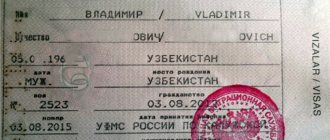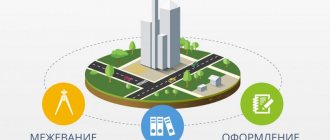Free privatization of housing began in 1991. But the dacha plots were in a “suspended” state until 2006. Citizens, and, presumably, the state, were not entirely clear how to deal with them?
On the one hand, millions of Russian families were the owners of the notorious “five hundred square meters” - a plot in a gardening partnership or similar country real estate “on the ground”. On the other hand, retroactively purchasing land and buildings at full price was clearly an unbearable financial burden for them.
The procedure for registering ownership of a summer cottage existed, but it was so complex, confusing, and ambiguous that not everyone could use it. This meant that for many years most Russians were not sure whether they owned their land or not, and the state had a huge layer of property in the shadow sector of the economy. After all, since the plot is not owned, then it cannot be taxed.
Finally, in 2006, Federal Law No. 93 came into force, immediately dubbed the “Dacha Amnesty” in all circles. It became possible to privatize plots free of charge and in a simplified manner. Initially, the law was limited to 2020, but has now been extended until 2021.
It is possible that events will develop further, as with Federal Law No. 1541-1, which regulates the free privatization of housing. Its validity was also extended several times, and then the law was declared indefinite.
By the way, if the issue of housing privatization is still relevant for you, you can read about it in detail in the article on our portal “How much does it cost to privatize an apartment?” But let's return to land plots.
At the moment, you can privatize land for free until March 1, 2021. As in the case of an apartment, this does not mean that you will not have to pay anything at all. Obtaining some certificates and carrying out some procedures requires payment. But the costs, of course, are incomparable with the market value of the site.
In the article we will clearly define the price order for the privatization of a summer cottage. The final price is influenced by the region, local government regulations and some other factors.
What lands can you get for free?
So, the “Dacha Amnesty” involves the gratuitous transfer of ownership of a plot of land that actually belongs to a family or citizen. But not everyone. The register of plots subject to free transfer is clearly defined. This:
- Plots on which privatized real estate is located
That is, if there is a privatized residential building and outbuildings on a non-privatized plot, you have the right to freely receive ownership of the land located under them and the territory necessary for their operation and maintenance. It is important that they are built before the Land Code comes into force. That is, until 2001.
If buildings are not privatized, the land under them does not become property. It will either have to be purchased or leased.
- Plots under long-term lease
Typically, a long-term lease agreement is for 20+ years. But already three years after its conclusion, you can apply for free privatization of the leased plot.
- Plots received for gardening, individual housing construction, private plots
If the plot was originally taken for the construction of a private residential building, amateur gardening (essentially, “for a summer residence”), or to conduct a subsidiary plot on it (but not farming), then you already have all the legal rights to free privatization. All that remains is to arrange everything legally.
- Areas under garages
This registry item most likely does not concern “dacha residents,” since a privatized garage at a dacha is no different from other outbuildings. We are talking about members of garage cooperatives, many of which originated during the Soviet era. Now the owner of each box can become the full owner of the plot on which it is located. Privatization is formalized through the board of the cooperative.
- Land in perpetual use
This paragraph mainly concerns plots received by inheritance. Before the Land Code of the Russian Federation came into force, in Russia (and earlier in the USSR) land plots were provided to citizens for indefinite use. Now, even if the plot was not privatized by the testator, his heirs can begin the procedure on the same grounds that he had. Naturally, documents are required confirming that the plot was in perpetual use of the deceased person.
Which land plots cannot be privatized in 2018?
It must be borne in mind that some types of plots that are in municipal or federal ownership are not subject to privatization. In 2020, such salaries include:
- Reserve lands;
- Public national park lands;
- Public lands (squares, streets, roads, driveways, beaches);
- Lands withdrawn from circulation;
- Forest fund lands;
- Water fund lands;
- Lands approaching the coastline closer than 100 meters.
Note! The plots included in this list cannot be privatized, but can be transferred for long-term lease.
List of documents
At first glance, the package of documents required for the free privatization of a family-owned land plot is not very extensive. You only need to prepare three “papers”:
- A title document for land, which may be: An act on the transfer of a land plot for use to a citizen or citizens (issued by the government body that carried out this transfer)
- Long-term lease agreement (original and copy)
- Certificate of inheritance (issued by a notary to the heir)
But in practice, most likely, more documents will be needed. Registrars may request additional certificates required by local authorities. Considering that the site is most often located quite far from your permanent place of residence, each extra trip to submit documents greatly delays and increases the cost of the procedure.
To avoid this, it is better to consult with a lawyer in advance regarding the exact list of required documents. This can be done on the Prav.io portal.
Documents for privatization
So, to start the privatization process it is necessary to collect a complete package of documents. These documents have a certain validity period; if one document has expired and the other document has not yet been received, you will have to redo the first document.
The privatization procedure in 2020 is approximately the same for all lands, but the main difference is in the package of documents.
List of required documents for land privatization:
- Sample application;
- A copy of an identity document, passport, temporary residence permit, permanent residence permit;
- If the documents are submitted by a representative - a power of attorney certified by a notary;
- Cadastral passport (if not available, must be obtained);
- If a citizen carries out privatization for the first time in his life, then he needs a certificate of desire to exercise this right;
- An extract from the Unified State Register of Land Registers for the land plot and buildings, if they are on this plot;
- A notification in free form in which you indicate all the buildings on the site. Indicate their sizes and purposes according to technical passports.
- If privatization is carried out for one person, then notarized consent from the remaining family members is required;
- A document confirming the right under which the land plot has passed from the citizen’s possession;
- Certificate of state registration of buildings located on the site.
Additional documents that may be required:
- Certificate about the parameters of the site, issued by the BTI;
- Technical certificates for buildings;
- A certificate from the tax office confirming that there is no land tax debt;
- Certificate of cadastral value;
- A certificate issued by the regional land use authority on the cost of a unit of land (average cost);

Document costs (table)
We have prepared a table for you that allows you to calculate and plan the costs of processing documents.
| Title of the document | Price |
| Extract from the Unified State Register of Real Estate | From individuals – 300 rubles |
| Cadastral passport | From 2000 rubles depending on the region |
| Geodetic survey of the object | From 7,000 rubles to 15,000 rubles (also depending on the region) |
| Archival references | 200-300 rubles or free (depending on the region) |
| Notarial services | From 1000 rubles |
Of course, the figures are approximate, the exact price regulations are set by local authorities, in addition, you may already have some documents.
State duty for privatization of land 2020
If you are missing any documents, you need to contact local authorities to restore them. Next, you will need to contact your local government agency office. You can do this at the location of the site or at your place of residence and submit documents for consideration by making an additional payment. How much does it cost to register a plot of land as your property? The cost of privatizing land plots in Belarus depends on several factors, including the location of the plot itself, as well as its cadastral value and the availability of special benefits for the land.
We recommend reading: How to Organize the Sale of a Car in 2020
This year, a housing privatization program was launched in the Russian Federation. Privatization of an apartment under a social tenancy agreement is carried out without charging a fee for square meters. It was planned that such a preferential condition would be canceled since Putin extended the gratuitous transfer of residential premises into the ownership of citizens indefinitely.
Around the garden plot
To the greatest extent, the “Dacha Amnesty” concerns land plots that have been called “dacha” since Soviet times. Those same “five hundred square meters” in the gardening partnership that grew like mushrooms around cities starting in the 70s.
The land was allocated and registered immediately in a “large piece” - to SNT (horticultural non-profit partnership) or DNT (dacha non-profit partnership). And then it was cut into small sections for each member of the community.
The formal owner of the land was not the person using his dacha, but the structure - the partnership of gardeners and summer residents. That is, the summer resident could be “asked” from the partnership at any time, although, in fairness, it must be said that such cases occurred quite rarely. Federal Law No. 93 allowed such plots to be registered as personal property.
The procedure for registering the privatization of a plot owned by SNT is more complicated than that of an individual plot. A member of a gardening association should first apply to its chairman and send the appropriate application to the local authorities. Only after the application is approved can you begin the procedure of registering the land in your name.
If the dacha was allocated to the citizen personally, the registration procedure will be general - right in Rosreestr. In this case, the simplified registration procedure provided for by Federal Law No. 93 applies, and if possible, it is advisable to use it. The cost of registration consists of payment for the following actions:
| Name | Price |
| Territory demarcation | From 10,000 rubles |
| State duty for privatization of land | According to the “Dacha Amnesty” procedure - 350 rubles, in other cases - 2000 rubles |
| Extract from the Unified State Register of Real Estate | 300 rubles |
Even from the table it is clear that using a simplified procedure is more profitable - the duty is almost six times lower. So it makes sense to have time to privatize the land while the “dacha amnesty” is in effect.
Ground under the garage
In addition to garage cooperatives, there are individual ones, for the construction of which citizens received permission at different times. The land under such garages is the easiest to privatize - all the provisions of the Dacha Amnesty apply to them. A separate garage building (more precisely, the land under it) is registered in person, directly at Rosreestr or the MFC “My Documents”.
But the land of a garage cooperative is privatized only by collective application. The land is transferred into ownership only after full payment of the share contribution. The registration is carried out by an elected person representing all members of the cooperative. Usually the chairman plays this role.
The main cost of privatizing land under a garage is the preparation of cadastral documentation.
Important points
Only the owner can carry out various transactions with land; use of the plot on the basis of any agreement - lease, perpetual or temporary possession, lifelong with inheritance does not give him such a right. He can only use the land and then only for the purpose specified in the agreement that was concluded between him and the local government.
After registration of property rights, the plot can be sold, exchanged, donated, bequeathed, contributed to the authorized capital as a contribution, pledged, etc.
The privatization procedure includes:
- Preparation of documents.
- Submitting an application to the administration.
- Preliminary receipt of a positive decision from the administration on the allocation of land to the applicant.
- Land marking. If this has not been done previously, then it is necessary to prepare a boundary plan for it, register it with the cadastral register and issue a cadastral passport. Provided that the site is already registered with the State Cadastre, it will only be necessary to make adjustments to the database, boundary plan and passport.
- Resubmit your application. Now technical documents for the site are submitted along with it.
- Obtaining a decision from the administration on the transfer of land into the hands of an individual or enterprise.
If the latter document is available, the applicant can apply to Rosreestr and undergo state registration of the land. If the purchase of the plot is intended, then based on the decision made, the applicant must enter into a purchase and sale agreement with the municipality.
Land surveying is not always a mandatory procedure; for example, previously a garden cooperative divided the land allocated to it to all members, but separate cadastral passports were not issued, i.e. there is only one common document.
In this case, the owner of the plot will need to submit a diagram of his plot and issue a cadastral passport for it. This is important because the document displays the individual characteristics of the property.
In the future, they will have to be used to identify him in every official document (agreement and others) that the owner will draw up.
Typically, it takes about a month to complete the technical documents for the land and register it with the cadastral register.
The procedure for privatizing a plot can be carried out in different ways:
| For free | This is possible upon presentation of the relevant documents. |
| Paid | It is believed that not all land can be obtained free of charge; paid privatization is called buyout from the state. |
| By decision of the administration | Which she accepts on her own. |
| By decision of the judicial authority | An interested person who was denied an application to the local administration can send a claim there. |
But some lands cannot not only be purchased from the state, but also privatized. They could be withdrawn from circulation, are intended for municipal needs, are under state protection (reserves, national parks), are territories that are dangerous to human life due to the objects located on them, etc.
Legislative acts that regulate issues of land relations and privatization include:
- Land Code;
- Housing Code;
- Civil Code;
- Federal Law No. 178 on the “dacha amnesty”;
- Federal Law No. 122 on state registration of real estate;
- Federal Law No. 221 on the amount of state duty;
- Federal Law No. 1541-1 on the possibility of privatization of the housing stock of the Russian Federation;
- Government Decree No. 47 on the technical condition of premises before commissioning;
- other.
The following categories of persons may become applicants for receiving land from the state on a paid or free basis:
- owners of buildings located on the site, they have the exclusive right to privatization;
- a person who received land for free use under a social lease agreement, i.e., under which payment is not provided, in this case the plot can be purchased;
- a citizen who took a plot of land for use under a lease agreement with the condition that he would build a residential building on it and then submit documents for privatization;
- owners of apartments located in an apartment building, they can receive land for free as common property, they will only be required to submit a collective application;
- owners of garden and country plots who have erected summer residential houses on the plots, registered them as their property, and are also members of cooperatives;
- large families raising 3 or more children, they can be given land for individual housing construction;
- preferential categories of citizens who are allowed to erect buildings on the land, organize private household plots, engage in gardening or vegetable gardening;
- members of garage cooperatives.
A contract for the purchase and sale of a land plot by power of attorney must be drawn up in accordance with generally accepted rules. Whether free land plots are issued to large families - we’ll tell you here.
Of course, to begin privatization, the applicant needs to make sure that this site can be privatized. It is important for citizens to note that if the land is leased, then it is possible to privatize it for free if the agreement was signed before 2001.
In fact, the applicant must be a citizen who has received land for indefinite use. Everyone else who entered into a lease agreement after 2001 will have to buy the plots.
For rent
If the land is leased from a municipality for a long time, the “Dacha Amnesty” is an excellent reason to transfer it to your private property. If the lease was executed no later than November 2001, there should be no problems at all. You just need to complete the full package of necessary documents.
You can see the cost of obtaining documents and certificates required for free privatization of leased land in the table above. The fee will be 2000 rubles. The simplified procedure does not apply to the privatization of leased land.
What documents should I provide?
When deciding to participate in the land privatization procedure, in order to contact the local administration (since it is they who make the decision to conclude a privatization agreement or to deny such a right with a specific answer based on an assessment of the entire package of information provided), it is necessary to prepare a certain list of documents , which will confirm the applicant’s right to participate in the procedure for transferring ownership of a particular plot.
Such a list must include:
- Application for the implementation of the privatization procedure (it must indicate not only all passport data and individual taxpayer number, but also the purpose for which the plot will be used in the future, its size, area and location).
- All available documents that were previously issued for a specific land plot (including a lease agreement, indefinite or free use).
- If there is a building on the territory subject to transition into private ownership, all title documents for such a structure , be it a full-fledged residential building or a country trailer, which is not recognized as residential under any circumstances.
- Technical passports for all buildings that are on the site (if such documents exist).
- Cadastral documents for the plot itself (if available).
- An extract from the Unified State Register of Rights on the previously carried out registration of the right to this land territory (or on the absence of such registration).
- Original and certified copy of the applicant's identity documents.
Sample application for privatization of a land plot.
After submitting the entire package of documents, which are provided, as already mentioned, to the local administration, the process of reviewing the application begins.
Under a private house
A huge amount of private real estate in Russia is located on land owned by the state. With apartment buildings everything is clear; in this case there is no choice. But the land under a private house can and should be privatized. Until the owner of the house does this, the land will remain on the balance of the state. Therefore, the homeowner cannot dispose of it. And in the event of alienation (for example, for the construction of a state facility), he will receive compensation only for the residential building.
So it is still worth privatizing the land on which a private house stands. You will face costs, but at least you won’t have to buy the land at market value.
So, what expenses will be required to privatize land for individual housing construction?
| Name | Price |
| Registration certificate for the building | 1500 rubles |
| Extract from the Unified State Register of Real Estate | 300 rubles |
| Carrying out the land surveying procedure | From 7000 rubles |
| State duty | 350 rubles for the land under the house and 2000 if other plots are privatized |
| Notarial services | From 1000 rubles |
When the land occupied by your private house or cottage, as well as the territory necessary for its maintenance and operation, is privatized, nothing threatens your property.
A plot of land with a house cannot be alienated without compelling legal reasons. And if such problems do arise (for example, a federal highway passes through it), then you will be entitled to compensation for both the house and the land.
State duty for privatization
Privatization is a transition from one form of ownership to another. More precisely, from public to private. The privatization process in our country began in the 90s of the last century. At first, free privatization was legally limited to a certain time frame.
But in 2020, privatization in accordance with Federal Law of the Russian Federation No. 14 was declared an open-ended and free procedure. Those who receive an apartment, house, or land from the state do not pay for the property. But at the same time he acquires property, which he can then sell, donate, or exchange. By law, free privatization is possible only once.
Apartments
A large share of privatized real estate are apartments. For more than 20 years of the opportunity to privatize your home, according to various sources, 70-80% were registered as property.
By privatizing an apartment, the owner has the opportunity to dispose of it as his own property.
One of the advantages of privatization is that the owner of an apartment, unlike a tenant, cannot be evicted from his home even for debts. In addition, if you wish, you can carry out redevelopment in your apartment, coordinating this issue in advance with special services.
The state duty for the privatization of an apartment is 2 thousand rubles.
Land plot
Land plots can be acquired either through purchase or through privatization of state or municipal property.
The advantage in privatization belongs to the one who owns the house standing on a given piece of land.
Before you can obtain ownership of land, you need to register the land in the cadastral register.
Contacting a cadastral engineer is an expensive but necessary step. When all the necessary land surveying work has been carried out and documents have been prepared, the citizen has the right to apply for registration of ownership rights.
The state duty when registering a land plot for individual housing construction, IGIS, private household plots is 350 rubles. For other areas - 2 thousand rubles.
Privatization of a share in a municipal apartment is not always possible. Is it possible to privatize an apartment with rent arrears? See here.
Garage
A garage that is not registered in the Unified State Register of Real Estate, just like other real estate objects, cannot be considered full-fledged property.
Registration of rights to a garage cannot be considered privatization, since garages were usually built by garage cooperatives, which have the status of a legal entity.
Registration of a garage as a property takes place in two stages:
- registration of a land plot as shared ownership between the participants of the garage cooperative;
- obtaining documents for the building itself.
Some citizens, taking a responsible approach to the privatization of an apartment or house, ignore the registration of ownership of the garage, considering it unimportant. But if the administration wants to seize this land, the owners will receive adequate compensation.
How much does it cost to privatize a garage? The state duty is 350 rubles, plus 200 rubles - the state duty for issuing a cadastral passport (if the right to a garage was obtained after 2001).
Private house
Privatization of a private house has its own characteristics. Part of the house can be registered as property. But first the house must be registered as a single whole with the BTI. Then, with the consent of the remaining owners, you can register your share.
But the main feature is that the house is registered simultaneously with the land plot.
The state fee for registering the house itself will be 2 thousand rubles. Privatization of a house will make it your property, without which it will be impossible to sell, exchange, donate or bequeath it .
Rooms
The right to free privatization applies only once to those who want to privatize a room, except for children under 18 years of age if they take part in privatization together with their parents.
After they reach the age of majority, they can independently register ownership of any of the real estate objects.
A room can be arranged not only in a privatized apartment, but also in the case where the other residents are registered under a social tenancy agreement.
The biggest difficulty is obtaining the consent of residents. Without the written consent of everyone registered in a given living space, privatization cannot take place.
State duty
The preparation of any important document is a paid government service and is subject to a fee. Documents for registration of privatized land in Rosreestr are, without a doubt, important. The fee for them is fixed, its size depends on the nature of the procedure:
- Privatization of land for individual construction, personal subsidiary farming, gardening and vegetable gardening, garages is subject to a fee of 350 rubles from the owner
- Privatization of other plots - in the amount of 2,000 rubles per owner.
The fee must be paid before visiting Rosreestr or “My Documents” (MFC). Without a paid receipt, the application will still not be accepted.
State duty for privatization 2020 - apartment, land plot, garage, room, how much it costs
- payment for the purchase of land from municipal property (if provided);
- state duty paid to the budget for registration of property rights;
- other costs for processing additional documents necessary to complete the privatization procedure.
You should also contact a notary if one of the applicants refuses to privatize the land allotted to him. His refusal must be in writing and notarized. For certification of the refusal, a fee of 1000 rubles is paid.
We recommend reading: What Taxes Are Accrued on Sick Leave 2020
How and where to pay?
The state fee can be paid:
- In cash through any licensed Russian bank or Russian Post
- Via a special terminal
- Through the State Services portal
- Through payment systems
The last method is only theoretically possible. Because an electronic payment confirmation printed by you on your home printer will not be relevant confirmation of payment for government agencies. For it to become this way, it must be stamped with the seal of the bank through which the payment went through.
Thus, paying state duty through electronic systems is simply pointless - you will still have to go to the bank to get a stamp. So, if you want to pay the fee from your PC, it is better to do it immediately through the State Services portal.








